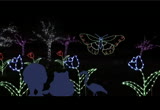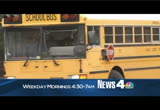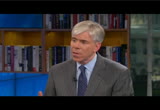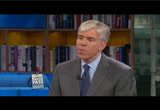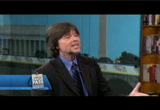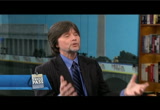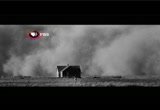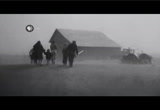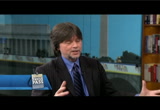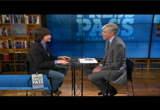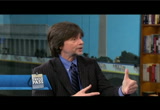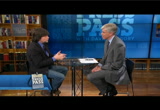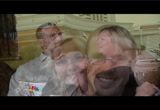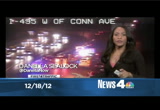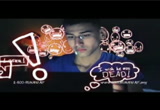tv Meet the Presss Press Pass NBC December 23, 2012 11:30am-11:45am EST
11:31 am
i'm david gregory and this is "press pass," your all access pass to an extra meet the press conversation. this week a discussion with ken burns on the american spirit in hard times. his new documentary called "the dust bowl" tells the story about one of the worst man made ecological disasters in history. i want to start with politics. you spent so much time in the nation's past. there is a lot at stake. the reluctance on the part of the leaders to say the american people. >> a lot of it is for the last 30 years we changed the dialogue
11:32 am
from not my version of government is better than yours to the belief government isn't right. the person who believes the government is a workable instrument as to fight to a resistant to that. during the depression and the dust bowl during the second world war and other periods we have had a sense of shared sacrifice to get things done that democracy is the politics of the half love. not everybody gets everything. when we realize we are going to have to give it up it is given up in the back roomgz i think this take no prisoners my way or the highway attitude shows an incredible lack of the awareness of what it means to govern in the united states. >> and what government should do to help people particularly in a distressed economy and what the limits are before you infringe
11:33 am
on personal freedom. >> that's right. every decade has an example of it. we have to find the balance i think. history is a good ally in that in so far as we do not see government as all bad or all good. in that balance has been the most spectacular history. our government has been a force for good for the emancipation proclamation and minimum wage and social security and gi bill. this is not a bad track record for something painted as one of the villains of all times. at the same time you don't want to give that government a cart blanche. you want to center this activity. that is what i think we have lost sight of. we are responsible, too, because we like the fight.
11:34 am
we like the blood. if it bleeds it leads. so we forget to say it is unsexy but can we really talk about the budget or what this deficit means? can we really say if you are going to solve this problem x, y and z absolutely has to happen. it is not a question of whether you are a democrat or republican. this has to take place. no millions of dollars you throw in a campaign will change in the mathematics. >> let me ask you about "the dust bowl." all of your films in some ways can be coaxed out of them is some modern day resonance and we can get to that. first, talk to me about this period of history and what drew you to it. >> first of all, you are always drawn to stories. people forget the word history is made up of story. it is not boring dates and facts
11:35 am
t. is stories the way human beings communicate. when you start researching something that you didn't know that much about -- we all have conventional wisdom. you say dust storm and we have an image. and then we think cotton prices and the depression and moving to california and it mostly takes place in california. the real dust bowl, this area of the panhandle of oklahoma and texas and a little bit of kansas, colorado and new mexico, that was the epicenter of this nationwide drought, the epicenter of the dust bowl was this area of the worst man made ecological disaster in american history. you say wait, man made. a decade long apocalypse that not only killed your crops and moved more dirt in one day than the excavation of the panama
11:36 am
canal and dumped dirt in chicago and stro and detroit. franklin roosevelt had oklahoma on his finger tips in the oval office. and then you started to realize who is still alive to tell this story? you needed to find the critical mass of people. we did that to find a group of people who were children and teenagers at the time who would suffer through this ten-year apocalypse. amazingly enough i think all of us after two storms we leave and get our children out of there. some stayed and figured out where that stubborn american streak of perseverance and grit and said we're going to make this happen and they learned new techniques and the government helped them out and low and behold the weather got a little less severe and they emerged
11:37 am
from it. it is one of the most fascinating periods. >> the man made piece is fascinating, too because that era is decade of a bubble. >> the more things change the more they stay the same. there is nothing new under the sun. we use these in every film we make. it is a real estate bubble, agriculture bubble. my house will always improve in value, the crop prices will be supported and the investments will never burst and of course they always do and we never learn. yes, we had an area of the country, the southern plains that was marginal called no man's land. someone in 1820 said this is a land uninhabitable for people dependent on agriculture. the government encouraged homesteading to pick up again. there were good years and then they had taken an area greaterer than the size of ohio and turned over the buffalo grass that held the soil in the midst of very
11:38 am
drought-like conditions all the time and a steady wind and they turned it over and they had good crops skpp planted more and then had bad years and planted more. more and more soil exposed to the drought. when it blew it was this holocaust of biblical proportions. the nature was so out of balance that there were plagues of jack rabbits and then locusts. the footage is unbelievable. thankfully there is this sort of proof. and more importantly this is the closest film we have made to an orallal history that the back bone is the story of these 26 people we were able to find and what they are surviving is no ordinary time. the ken burns effect you can be found on anybody's mac. the craftsmanship of it is so interesting.
11:39 am
you said it a moment ago. first person story telling to really understand history. it's not dense. your story telling is not dense. you talked about this project about the vietnam war or world war ii or the civil war, it's the voices, it's waking the dead, as you have said. what is that about? >> what it is about is what you do, too. it is listening. we don't do very much listening in our world. we do a lot of telling. and if you listen you learn unbelievable amoupts of things. so what if you listened to a still photograph? what if you said that still photograph is not some arrested static moment but a representation of some place, some moment in time that had a past and will have a future? and what if you moved in it the way your eye would move in it if you were living in it, the way you might walk through it if you were living in it? what if you listen to it? is that cart wheel turning or canon firing or the crowds cheering?
11:40 am
what are the things that would will that inanimate moment alive again trusting in its secret that it is some portal to that time? that is part of waking the dead. what if you didn't impose the third person narrator but allowed first person voices of the way people spoke then to help animate the period? what if you added period music and the commentary of people that had spent so much of their life studying it that it is almost there. he said to his friend and you think if i just pulled the camera out next to shelby will be layman and then we will get to see abraham lincoln. and people who can put you in that moment and together the aggregate of that is the ken burns effect. there are so many people that work with me, great producers.
11:41 am
11:44 am
from ken burns on his new pbs film, "the dust bowl." let me end on a very passionate subject and that is baseball. so here i am i grew up in los angeles a dodgers fan. i love the washington nationals and my kids do. i have a 10-year-old son and 7-year-old twins and i remember the first time i saw the dodgers win the pennant. i remember the beer flying through the air which is such a wonderful memory. if only that could happen for the nationals with my kids. i was at the game. the universe just isn't right. >> all of us became national fans. we were so excited. this is an incredibly excited team. everything seemed to be going right and then you run into
222 Views
IN COLLECTIONS
WRC (NBC) Television Archive
Television Archive  Television Archive News Search Service
Television Archive News Search Service 
Uploaded by TV Archive on

 Live Music Archive
Live Music Archive Librivox Free Audio
Librivox Free Audio Metropolitan Museum
Metropolitan Museum Cleveland Museum of Art
Cleveland Museum of Art Internet Arcade
Internet Arcade Console Living Room
Console Living Room Books to Borrow
Books to Borrow Open Library
Open Library TV News
TV News Understanding 9/11
Understanding 9/11